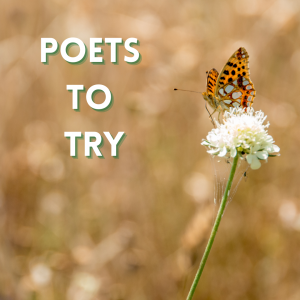 Looking to get into poetry but not sure where to start? We’ve got some ideas, cross-posted here from our upcoming LibGuide called Books We Read: Poetry. Take a look at the LibGuide for even more suggestions and resources!
Looking to get into poetry but not sure where to start? We’ve got some ideas, cross-posted here from our upcoming LibGuide called Books We Read: Poetry. Take a look at the LibGuide for even more suggestions and resources!
Poets to start with:
Billy Collins is the first poet I recommend to people who think they don’t like poetry. Dubbed “the most famous poet in America” by the New York Times, Collins writes witty, nimble poems, often on familiar topics––poems that are easy to love and rewarding to talk about and share. Enjoy his description of a “Snow Day,” a childhood memory in “Boyhood,” or thoughts about smoking and writing in “The Best Cigarette” (not recommended for those trying to kick the habit!). He was also a keynote speaker at the Writers’ Conference in New Brunswick in 2020.
Tracy K. Smith is a former Poet Laureate of the United States, whose poems show off a range of moods from playfulness and wonder to sorrow and melancholy. “The Universe: Original Motion Picture Soundtrack,” from her science-fiction-themed collection Life On Mars, imagines the Big Bang and everything after as an album. “Wade in the Water,” from the collection of the same name, explores the legacy of slavery through the traditional “ring shout” of coastal Georgia and South Carolina’s Gullah people.
Are you a stickler for poetry having some kind of regular regular rhyme or meter? Robert Frost is just the ticket. If you’ve been to high school in the United States you probably already either love or hate “The Road Not Taken,” but “Acquainted with the Night” and “Stopping By Woods on a Snowy Evening” reward a second look (or listen) outside the classroom. As a bonus, Frost might also convince you to expand your horizons: “Birches” lacks a rhyme scheme or a strict meter but still conveys the pleasant rhythm of swaying trees.
Li-Young Lee‘s poems often feel intensely personal, wrapped up with family and memory and religious experience. His frequently-taught “Persimmons” tells an immigrant child’s coming-of-age tale through the prism of a fruit he associates with family and a distant home; “A Hymn to Childhood” paints a darker picture of childhood, a youth cut short by trauma and violence.
Famously, Emily Dickinson was unappreciated in her lifetime and beloved afterwards when her scraps of verse were discovered and published. Her ‘poems’ have no formal titles, and are conventionally known by their first lines. Try After great pain, a formal feeling comes or I heard a Fly buzz––when I died for the detached melancholy and sparse, precision-tuned language that she’s best known for.
